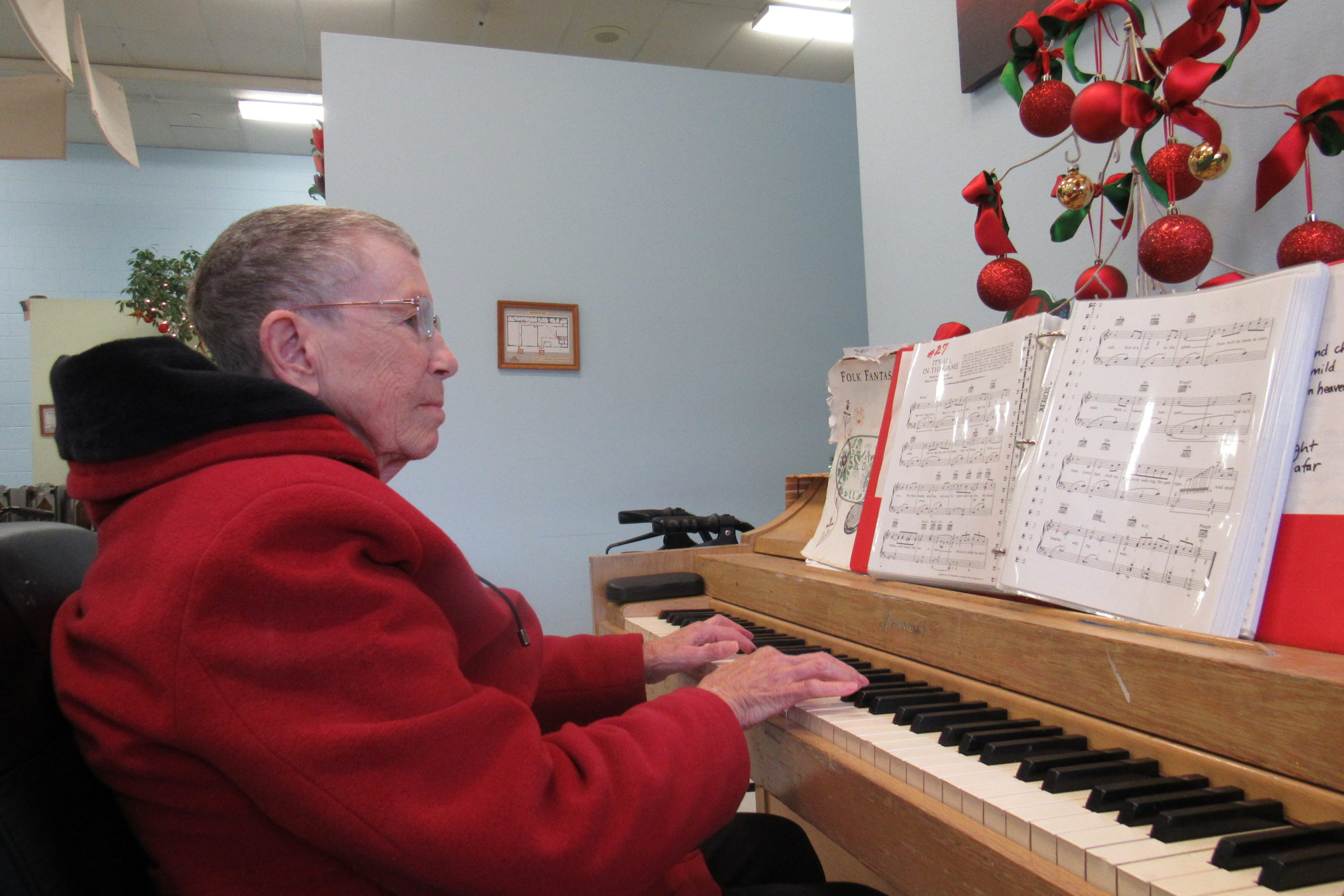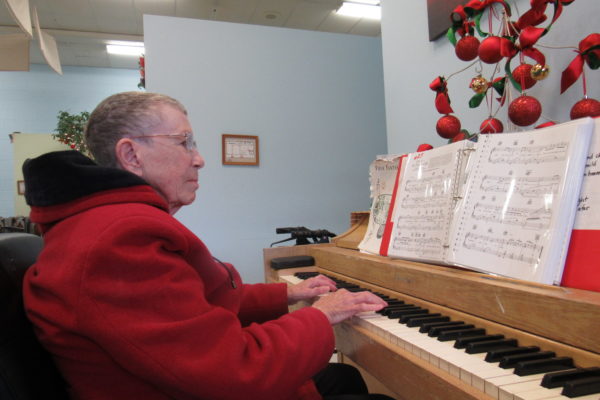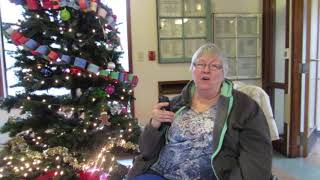Melodies of healing

Performing music helps in recovery
When Pat Ayars sits down at the keyboard, a miracle fills the room.
At Full Life Care’s adult day health center in Everett, Pat plays almost every afternoon after lunch for her friends. She is, quite simply, a treat to hear.

Pat Ayars at the keyboard.
Recently, she’s been playing holiday tunes, but she can play just about anything. Her hands are textbook examples of excellent technique – wrists straight, fingers strong and confident, pedal work spot on. It’s the result of nearly 70 years of playing and teaching.
“Oh, I could play all day,” she said between songs. “This is what I love.”
The stroke Pat endured 19 years ago paralyzed her. But that didn’t last. It failed to steal away her talent or her love of music.
“It all came back after a while,” she said, beaming. “I just kept at it. I love to play. I’m going to live to be 100!”
You can hear her for yourself here.
The therapeutic benefits of music are well known in the medical profession and especially in the realm of neurologic trauma. Decades of studies have documented the positive impacts that music can have in improving physical and cognitive skills – either through simply listening to music or performing.
And other research suggests that creative skills such as music performance developed before brain trauma can very likely remain hard-wired, so to speak. Tapping back into those parts of the brain can help in at least partially reversing some of the debilitating effects of a brain injury.
“We know the brain is an amazing thing, and research goes on to fully understand how it works,” said Kris Lau, LMHC, GMHS, Full Life Care’s Clinical Director of Community Based Services. “But the therapeutic benefits of music, how it can stimulate recovery and improve the quality of life; that’s evident.”
“I can’t tell you how many times music has had some therapeutic value in Adult Day Health,” added Danielle Wendell, Full Life’s Activity Coordinator. “It can trigger a memory once forgotten, it can motivate a client to move to the rhythm and it can also bring calm when it is needed. I am a firm believer in the power of music and its healing powers!”
And music, whether you’re listening or performing, can just make a person feel good.
That’s why Daphne White-Tassin enjoys singing, for any audience, anywhere.
At the adult day health center in Columbia City, Daphne was singing “Blue Christmas” for her friends. Everyone was loving it.

Daphne White-Tassin sings sings ‘Blue Christmas.’
Daphne was a rocker once, and music was her life. In her band, Chain of Events, she covered Janis Joplin tunes, Eagles hits and just about every other rock song of the ‘60s and ‘70s in taverns and night clubs in the Seattle area.
“Oh, I was a hippie,” Daphne laughed.
She gave it up in the mid-1970s to raise her family. But 10 years ago a brain injury took all that away from her. She was in a nursing home until she said her sister found Full Life Care. Daphne was able to transition back home with her husband.
She still deals with mobility challenges and a frozen left hand. But the one thing the injury didn’t take from her was her singing voice. When she croons “You’ll be doin’ alright, with your Christmas of white …,“ she hits the high note dead on. Just listen here.
“I’m a walking, talking miracle,” she said.

